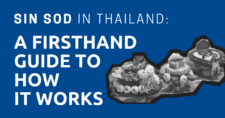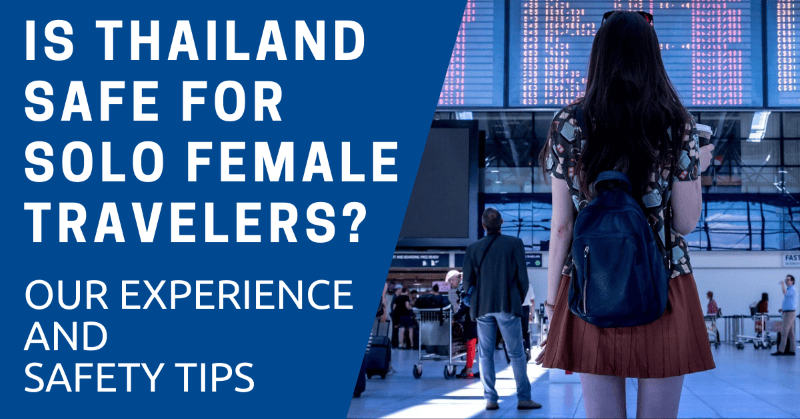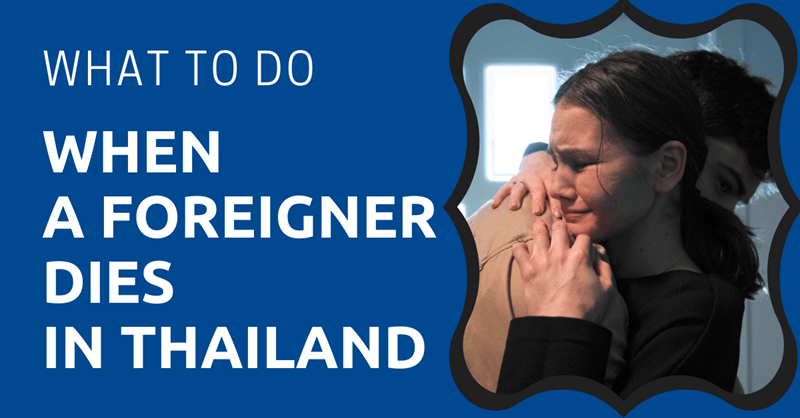
Sadly, it is not an uncommon occurrence that a foreigner passes away here in Thailand. While Thailand is a wonderful and safe place to live, there are many factors that coincide to lead to the deaths of both tourists and expats in the Land of Smiles.
Thailand is a popular place for retirees to settle down and for those with health problems to seek affordable care. It is also a place where people enjoy reckless activities like diving, motorcycle riding, and extreme sports. Even sometimes just crossing the road can be a risky move.
Every year, there is around 200 tourist deaths (not including expats). The majority were from water recreation activities, then road deaths, personal health problems, and suicide.
For whatever reason you are seeking out this article, we are so sorry. We hope that we can clarify the steps for you so that while you are grieving, you have some transparency over the process of dealing with this awful situation.
As the next-of-kin (NoK), you will have to navigate some bureaucracy and processes which we suggest you have a Thai translator for to make it all much easier.
"*" indicates required fields
Disclaimer: This article may include links to products or services offered by ExpatDen's partners, which give us commissions when you click on them. Although this may influence how they appear in the text, we only recommend solutions that we would use in your situation. Read more in our Advertising Disclosure.
Contents
- Bureaucracy Overview
- Step 1: The Deceased Goes to the Morgue
- Step 2: Releasing the Body From the Morgue
- Obtaining a Death Certificate in Thailand
- Step 3: Planning a Funeral or Repatriation
- Funeral Homes, Costs, and Their Services
- What If There is No Next-of-Kin?
- Country-Specific Paperwork
- Travel or Life Insurance Assistance
- Now, on to You
(And How It’s Costing Them)
Most expats throw money away, get lost in red tape, and miss the local hacks that make life easier and cheaper. ExpatDen Premium gives you the secrets seasoned expats use to save, earn, and thrive beyond the basics, saving you thousands and opening doors you didn’t even know existed.
Here’s what’s inside:
- Housing Hacks: Slash your rent by 40% or more - because the locals are laughing at what you’re paying.
- Banking Mastery: Stop wasting on fees and get top exchange rates. Why give your money away?
- Healthcare for Local Prices: Quality treatment without the expat price tag.
- Visa and Legal Shortcuts: No more bureaucratic nightmares. Get the visa and residency secrets that others pay their lawyer dearly for.
- Deep Discounts: Find the savings locals rely on for groceries, dining, and more.
If you’re serious about making Thailand work for you, join ExpatDen Premium and make Thailand work for you.
Bureaucracy Overview
When a foreigner dies in Thailand, the steps that follow will depend on whether or not the person has a Thai spouse and/or family, whether or not a NoK is able to travel to Thailand to handle the procedure, and whether or not the deceased has assets in Thailand. It will also depend on whether the foreigner will be repatriated, or laid to rest in Thailand.
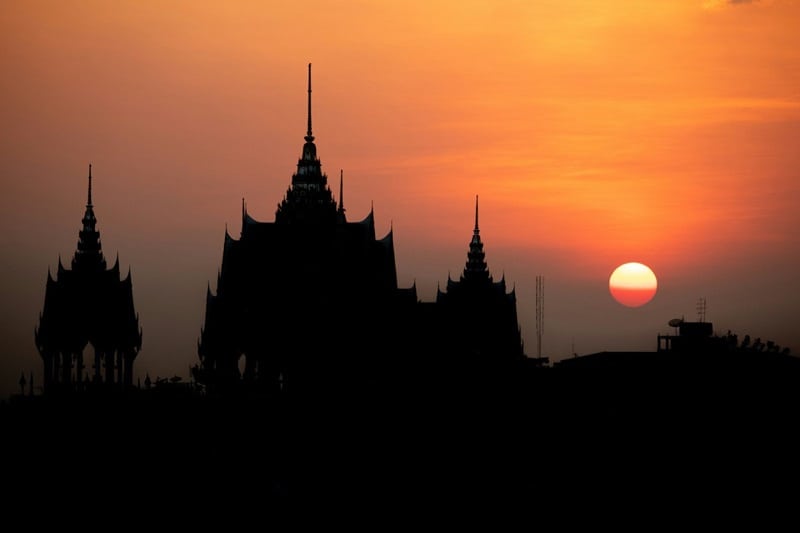
In this article, we will go into a lot of detail about these processes, but here is the general overview of the paperwork and bureaucratic processes you should prepare for.
Death Occurrence:
- The hospital issues a temporary death certificate or doctor’s death certificate. For natural causes, no autopsy or police report is needed. If the death is unknown, an autopsy will be automatic. If it is suspicious, then there will be further police processes to handle.
- All hospital expenses must be paid before they will release the body.
Registration:
- The death certificate must be registered at the local City Hall and they issue the official death certificate or civil registry death certificate. It is in Thai.
Embassy Procedures:
- The death certificate and the deceased’s passport must be taken to the embassy. The embassy cancels the passport, translates the death certificate (for a fee), and provides certified copies. They also issue a letter permitting the disposal or transportation of the remains.
Funeral Formalities:
- A Thai funeral home with experience with foreigners is engaged to handle proceedings which take place at a local temple.
- They might need to obtain a cremation permit from local authorities giving permission for the cremation to go ahead, this confirms that there were no suspicious circumstances in the death and that no autopsy is pending.
Post Funeral:
- Notify appropriate authorities in the deceased’s home country, providing certified copies of the death certificate and, if needed, the will.
Asset Management:
- If the foreigner has family and assets in Thailand, a Thai law firm should be engaged to handle legal matters.
- The will is reviewed by the court approximately 45 days after death. The court approves the will, allowing the executor to manage the deceased’s assets.
- A lawyer in the deceased home country might need to be engaged to handle assets and the will at home.
Bank and Utility Management:
- Bank accounts in Thailand should be frozen, and utilities and other services should be cancelled or transferred.
Repatriation of the Body or Ashes:
- Your funeral home can facilitate this process.
- An import permit might be needed depending on the home country’s requirements.
Step 1: The Deceased Goes to the Morgue
What happens when someone first dies in Thailand will depend on the location and circumstances of the death.
A Person Passes Away at Home or Outside
If someone passes away at home or in an accident in public, the person who discovers them should contact Emergency Medical Services to transport the body to the nearest city morgue. Someone will need to incur costs for this service on the spot at the time of transportation. Any of the numbers below will trigger the response you need.
- Thailand Emergency Hotline: 191
- Thailand Ambulance & Rescue: 1554
- Thailand Tourist Police: 1155
- Thailand Medical Emergency: 1669
An ambulance will transport the deceased to the nearest city morgue, usually located within the main government-run hospital for the provincial district. If the deceased is a foreign national, the morgue will inform the tourist police, who will then contact the relevant embassy in Bangkok. The embassy will notify the deceased’s NoK.
If the reason for the death is unknown or suspicious, there will be an autopsy. Even if the family objects to this for personal or religious reasons, this cannot be avoided and the NoK might not be informed before it happens. Parts of the body removed for testing in the autopsy procedure will likely not be returned to the NoK.
A Person Passes Away in a Hospital
Their body will be sent to the morgue by the hospital staff, which could be within that hospital or another location. Private hospital deaths require transportation to the city morgue at additional costs to the family.
The hospital should already be in contact with the NoK and will be able to advise those people of their next steps. After transportation, the morgue will also notify the tourist police, who will determine the deceased name and nationality then contact their embassy. The police will hold onto the personal effects such as wallet, passport, and identification at this stage.
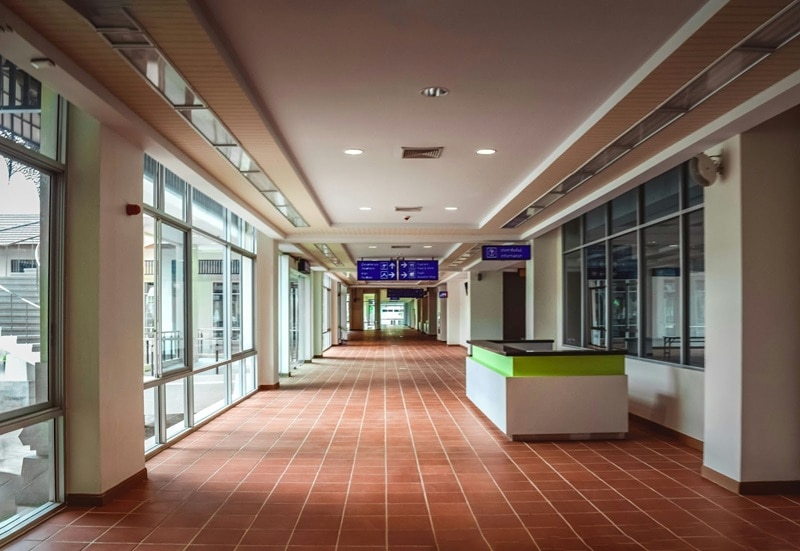
In the case of a hospital death with a known cause of death, a complete autopsy will not usually be performed. If the family requests one, this can be done at an additional cost. The hospital will provide a notification of death, stating the reason of death.
Someone must pay all hospital bills before they will release the body.
Step 2: Releasing the Body From the Morgue
The person to whom the Thai authorities can handover the body must be decided by the embassy. They will be the ones who determine who the NoK is. They will use electronic records from their country to determine based on things such as passport applications, marriage records, and medical records.
By this point, the embassy should have already been in contact with the NoK and will have established the main contact person who will likely be in Thailand, or come to Thailand to assist the process in person.
If no NoK can go to Thailand to handle the process, a Thai law firm can be employed by the family to handle the process in Thailand and arrange for the remains to be repatriated.
Engaging a lawyer can be very beneficial for this process, regardless of the situation. If the deceased owns assets in Thailand, a lawyer must oversee the inheritance process in court to appoint an executor, irrespective of the presence of a last will and testament.
Please see our articles here on finding legal assistance:
- An In-Depth Guide to Hiring a Lawyer in Thailand
- Lawyers in Bangkok: A List of Recommended Law Firms
The embassy will provide the Kok with a letter of authorization which is needed to ask Thai authorities to release the body from the morgue to a funeral director.
Obtaining a Death Certificate in Thailand
The process begins at the City Morgue, which provides an initial document to declare the death of the foreigner. This initial document is not the official death certificate but serves as a preliminary declaration of death.
The official Thai death certificate is issued by the City Hall, the local district office (Amphur or Tedsaban). This certificate is necessary for formal acknowledgment of the death of a foreign national in Thailand.
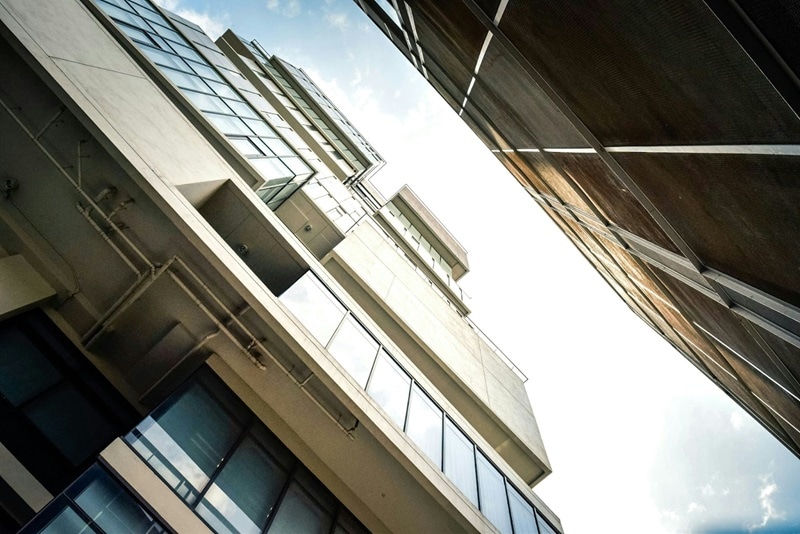
A visit to the local amphur is necessary.
It is the duty of the NoK or an appointed attorney to visit the official office to complete the necessary paperwork for the official death certificate. This process involves submitting the initial document from the morgue and any additional required documents.
After obtaining the official death certificate in Thai, the family must get an official translation. This translation is typically handled by the embassy of the deceased’s home country.
Step 3: Planning a Funeral or Repatriation
For families who are dealing with the death of a family member in Thailand, you have some important decisions to make.
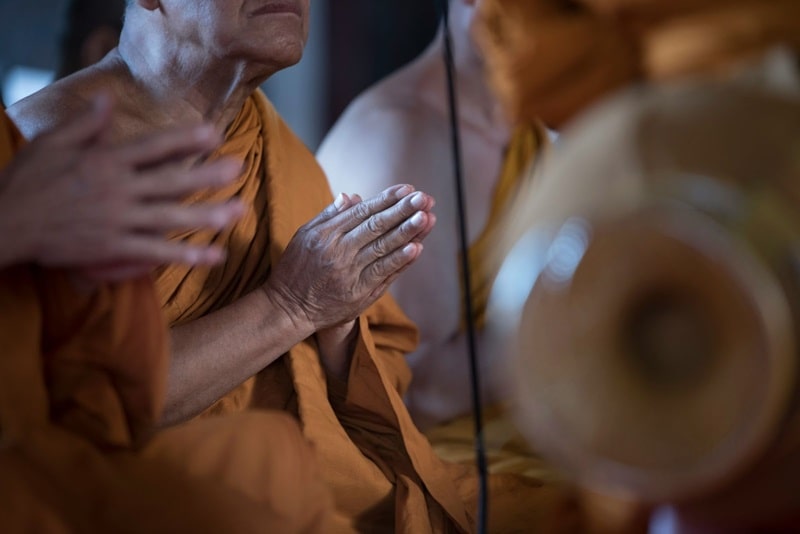
Firstly, note that the morgue does not arrange for the transportation of the body for the funeral. In Thailand, the family usually handles transportation themselves. Alternatively, a chosen funeral home can manage the transportation arrangements.
Families have four main options to choose from when a family member dies in Thailand:
- Repatriation of the body
- Repatriation of the ashes
- Local cremation with either ash scattering, or the ashes being laid to rest in an urn in a “chedi” at a temple.
- Local burial (very uncommon)
Whatever the final plan is for the final resting place, some kind of funeral must take place and a funeral director must be involved in handling the proceedings.
Even a simple cremation without a traditional Buddhist ceremony when the family plans to take the ashes back to their home country, a funeral director will manage everything and the cremation will take place at a temple.
If the family chooses to have a local cremation in Thailand. Thai funeral customs may differ from those in the deceased’s home country, so it is advisable to work with a local funeral director who understands the specific requirements and can assist in arranging a respectful service.
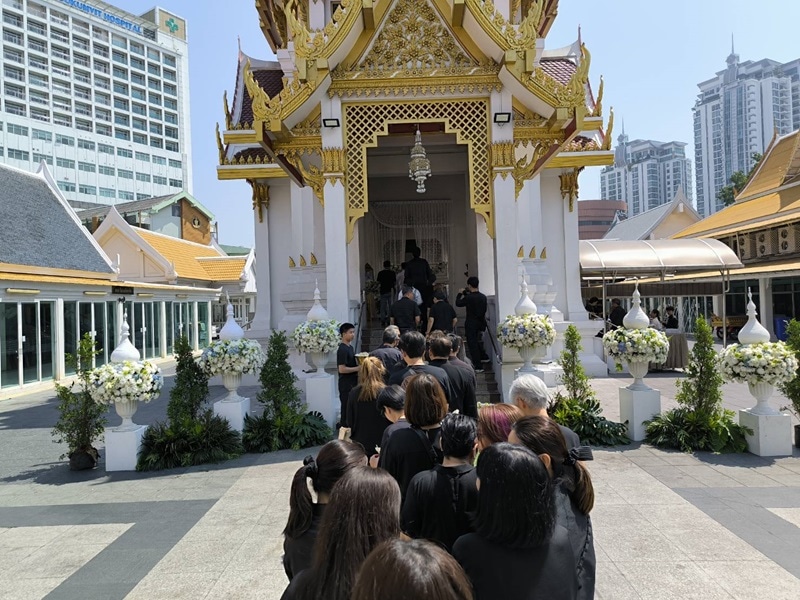
For the most part, people who have a funeral in Thailand will have a traditional Buddhist service.
For non-Buddhist foreigners, funeral services can be tailored to reflect their cultural or religious traditions. Many funeral homes in Thailand are experienced in handling diverse cultural practices.
Repatriation of the Body
If the family wishes to repatriate the body to the deceased’s home country, they will need to coordinate with the embassy and a funeral director experienced in international repatriation.
This process includes obtaining necessary documentation, such as the death certificate and embalming certificate, and complying with international shipping regulations and national import regulations of the home country.
Repatriation of the Ashes
Repatriation of ashes after a funeral and cremation in Thailand is easier than repatriating a body. But there are specific needs for each country and airline to declare that you are transporting human remains.

As an example of some repatriation requirements, you can see the Thai Airways information on the process here. You can also see another example where QANTAS has a special booking section for those carrying human remains.
If the NoK is not personally travelling with the remains, the funeral director can facilitate the whole process and the family can collect the remains in their home country.
Cremation
Cremation is the Thai buddhist tradition and the most common funeral practice, particularly in city areas. Even for non-Buddhists, the temple funeral and cremation is standard, but the monk services will be minimal.
Buddhist funerals which happen before the cremation are usually elaborate events that commemorate the deceased and offer the family and community spiritual support. Exact rituals vary by region.
White is traditionally the colour of mourning; mourners are usually to dress in white, black, or other muted colours, and mixed white flower wreaths are given.
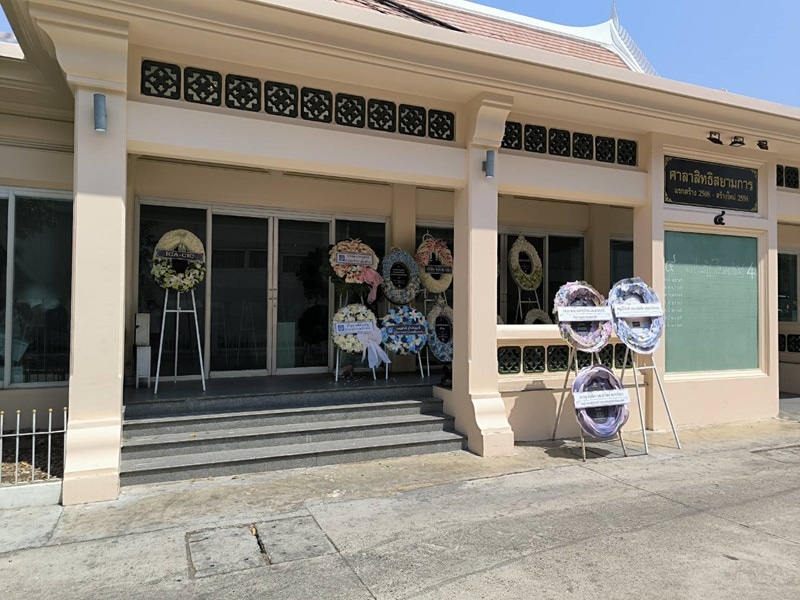
Thai funerals most often take three days, but can also take 5, 7, or 9 days. This depends on the family. If a foreigner who dies in Thailand has a Thai spouse and family here, then they might also insist on a long funeral. Funerals can take place at a family home or a temple.
Thai funerals are usually led by Buddhist monks, and often include merit-making activities such as making donations to temples, offering alms to monks, and performing rituals to accumulate merit for the deceased. These acts are believed to benefit the departed in their journey to the next life. Offerings such as flowers, candles, incense, and food are common.
The Ashes
It is common for the ashes and bones to be divided up among family members. Often, a ceremony takes place where a monk draws the shape of a body in the ashes, or roughly shapes the ashes into a human form. This is apparently so that the temporarily displaced soul can identify their former body and transition into the ash.
Sometimes family members will bring their own urns and divide the remains between them. They will then sometimes keep the ashes in the family home. Sometimes family members will just keep a small amount of ashes to remember their loved one. Some families will keep the ashes at a temple.
It is most common though that most of the ashes are scattered at sea. All funeral directors will offer this service.
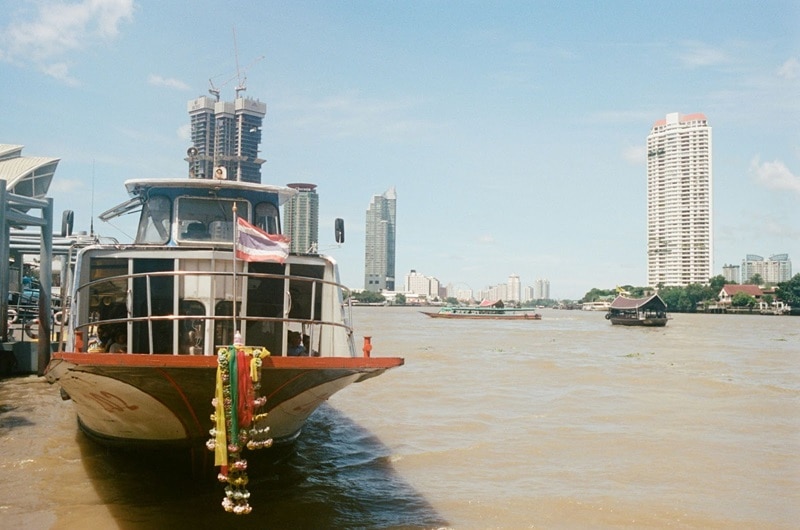
After being placed in an urn, the ashes are transported to a sacred place, such as a lake, river, mountain, or sea. A boat will be rented to take selected family members to the scattering location. This is a beautiful and meaningful way to celebrate the life of a loved one.
Burial
The Burial of a body is very unusual in Thailand. This is for several reasons. In the Thai tradition, cremation is a way to facilitate one’s rebirth into his next life, thanks to the Buddhist belief in reincarnation. It is also very expensive, graves require ongoing maintenance, and land space for cemeteries is limited.
Funeral Homes, Costs, and Their Services
Choosing a reputable funeral home is crucial. The funeral home will assist with all necessary arrangements, including transportation of the body, embalming (if required), and organising the funeral service. The embassy can often provide a list of recommended funeral homes. See our list below with some price estimates.
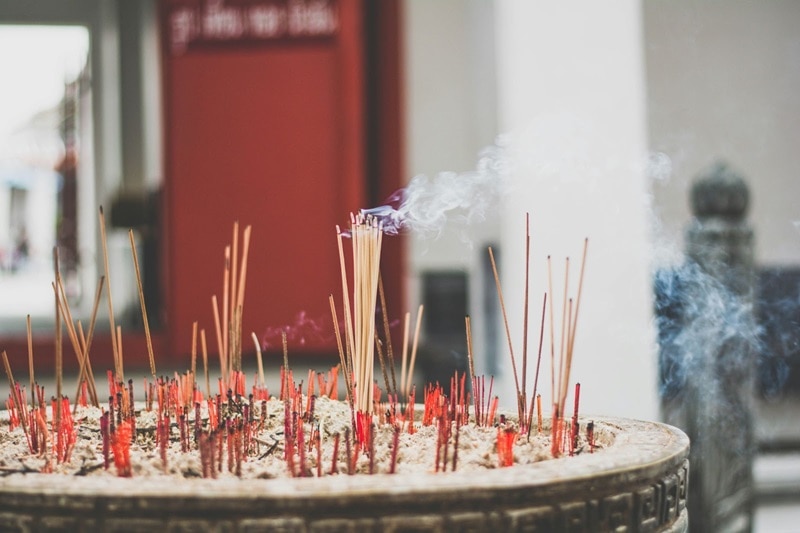
The cost of a funeral for a loved one can be a very expensive occasion. Many people believe that it is important to spend a lot of money and have funerals which go on for a whole week and provide food for entire villages of mourners. These events can cost THB100,000 or more.
If the deceased has a Thai spouse and family, then some funeral traditions will be unavoidable. But if the deceased is a tourist or someone with no real link to Thai culture, then a simple cremation can suffice. The whole process can cost as little as about THB30,000.
Siam Funeral have provided some quotations:
- Remains repatriation USA: THB100,000
- Cremation and return the ashes to USA: THB46,000
- Cremation and scattering the ashes from a boat: THB41,000
- Basic Cremation: THB36,000
- Transportation of ashes to the USA: THB15,000
According to sources on the Australian embassy website here, the following are some other recommended companies and their estimated costs for funeral services:
AMAR (Allison Monkhouse Andrews Repatriations)
- Local cremation and scattering of ashes: THB30,000 – THB42,000
- Repatriation of ashes (excluding cremation cost): THB4,500 – THB9,000
- Returning remains to Australia: THB80,000 – THB110,000
AsiaOne International Repatriations
- Local cremation and scattering of ashes: THB30,000 – THB35,000
- Local cremation and return of ashes to Australia: THB35,000 – THB40,000
- Returning remains to Australia: THB90,000 – THB100,000
Here are some other recommended funeral directors for specific areas around Thailand:
- Bangkok: EverCare Solution
- Bangkok: Funeral Plans
- Bangkok and Surrounding Provinces: Farewell Funerals
- Chonburi, Bangkok, Chiang Mai, Phuket: Thai888 Law & Abroad Funerals
- Chiang Mai, Chiang Rai, Lampoon, Lampang: Mindkoncept Inter Part Ltd
- Phuket and Bangkok: Medical Services Logistic International Phuket Co Ltd
- Hua Hin, Prachuap Khiri Khan and Phetchaburi: Hua Hin-Funerals
What If There is No Next-of-Kin?
If the deceased has no NoK to handle proceedings, noone has been put in charge of taking care of their funeral, and no arrangements are made within a specific period, usually 30 days, the deceased will be cremated and buried in a communal mass funeral known as a “pauper’s funeral”.
Country-Specific Paperwork
Check with your embassy in Thailand to see if there is any paperwork which might be necessary for repatriation or legal matters back in your home country. Most embassies have a page dedicated to this situation and can give you the best country-specific and up-to-date information.
For example:
- US citizens must obtain a Consular Report of Death Abroad (CRODA).
- Australia is known for its extremely strict quarantine regulations. The repatriation of remains or ashes require following some specific regulations as set by the Department of Agriculture, Fisheries and Forestry. You can read more about this here.
- The UK has a service called Tell Us Once which allows the family of someone who died abroad to report the death just one time and they will inform all relevant government departments.
- For South Africa, an import permit is required for human remains, but not for ashes. For ashes, the death certificate, cremation certificate, and copy of the deceased’s ID must accompany the ashes at all times. Read more about SA requirements here.
- The Dutch Embassy requires the person claiming to be NoK to fill out an application form requesting a letter of authorisation. They provide more information and an email address on their website here.
Travel or Life Insurance Assistance
If the deceased had travel or life insurance, these companies frequently offer international 24-hour helplines. Get in touch with them as soon as you can following a death.
Insurance providers will typically give guidance on local funeral services and a list of funeral directors in the foreign nation, pay the covered fees associated with the death, and sometimes handle the planning of a nearby funeral service or the deceased’s return to the home country.
Now, on to You
We understand that you might be grieving and these times can be hard to make decisions. We hope that we have provided some clarity on the processes involved in handling the death of a foreign national in Thailand.
We know that costs are a factor for many people, and Thailand can be a very affordable place for a funeral. We strongly recommend using a professional funeral director, and, if there are any assets or Thai family members to consider, a good lawyer is also key.
Please see our articles here on finding legal assistance:




